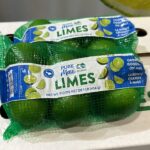Spanish olive growers win first battle in U.S. court against duties

Spanish olive growers have claimed an important victory in a U.S. court in their battle to lift some of the duties imposed by President Donald Trump’s administration.
Spain, the world's largest olive and olive oil-producing country, was hit hard when the U.S. Commerce Department imposed duties of around 35% on Spanish black olives in 2018.
That decision came after it concluded the Spanish olives were being sold too cheaply and benefited from unfair subsidies, damaging the California industry.
The European Union opened legal action against the duties at the World Trade Organization a year ago.
The United States Court of International Trade said in a ruling issued on Friday, and cited by the Spanish association Asemesa on Tuesday, that some of the Commerce Department’s interpretations of the U.S. Tariff Act were arbitrary.
The court said subsidies on Spanish black olives were not specific and that the level of production of raw olives was dependent on weather rather than the demand from the food industry. This, it said, is contrary to the reasons the U.S. had cited when deeming the subsidies unfair.
The court gave the Commerce Department 90 days to argue why the duties should be maintained at current levels.
“The ruling is a very important endorsement of the EU’s legal action at the WTO,” said Asemesa, adding that duties could be lowered to 20% from 35% as a result of the U.S. court decision.
It also described the ruling as "a message of hope" for the Spanish olive industry.
The U.S. Commerce Department now has three months to provide new arguments justifying the duties.
The U.S. implemented duties of 35% on Spanish black olives on August 1, 2018.














































